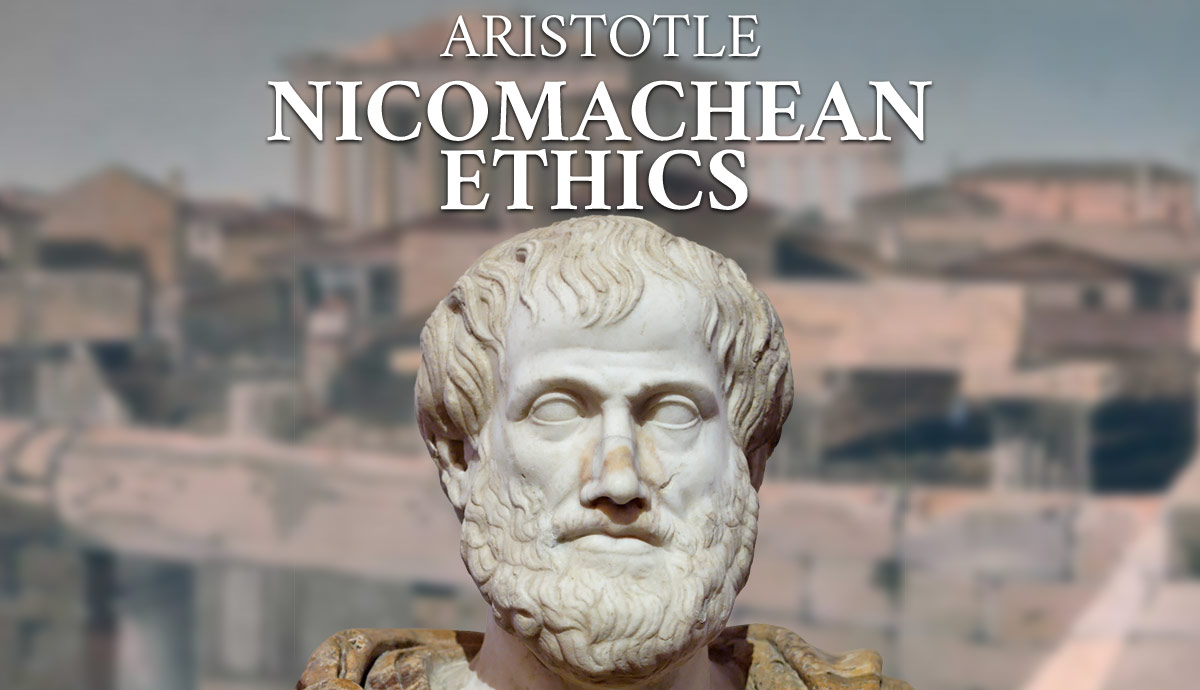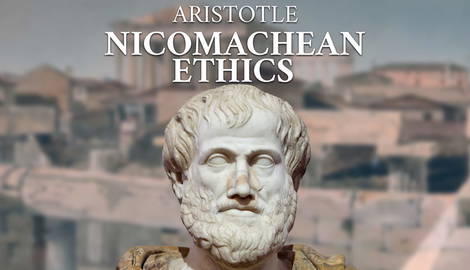
summary
- Aristotle’s Most Important Work: Written around 350 BCE in Athens, the Nicomachean Ethics is considered Aristotle’s magnum opus.
- Virtue & Eudaimonia: The work explores the concept of eudaimonia (happiness or fulfillment).
- Doctrine of the Mean: A key concept states that virtue is a balance between a deficiency and an excess of a character trait, pursuing the “mean” of that trait.
Often considered the cradle of Western civilization, Ancient Greece produced many of the Western world’s most important philosophers and philosophical texts. However, Aristotle stands out as one of the seminal philosophers whose ideas have shaped the discipline. Especially important are his Nicomachean Ethics, ten books that cover a broad range of topics from morality and virtue to reason and well-being. Discover more about the context that shaped this important work.
Aristotle Wrote Nicomachean Ethics

Aristotle was a philosopher in the 4th century BCE who rose to prominence as a student of Plato at his Academy. Aristotle later opened up his own school and even became the tutor for Alexander the Great. He was a prolific writer and explored many topics, including metaphysics, biology, and virtue. He was a prolific writer, believed to have written around 200 works, 31 of which survive. His Nicomachean Ethics is considered his magnum opus.
He Wrote It While at Plato’s Athenian Academy

Aristotle wrote the Nicomachean Ethics around 350 BCE while he was living in Athens. At the time, Athens was in a state of political upheaval, often transitioning back and forth between democracy to oligarchy, and was facing the rising imperial power of Macedon. This instability likely influenced Aristotle’s thoughts, and some of the views expressed in Nicomachean Ethics could be read as a reflection of Athenian society at the time. He probably wrote the work near the end of his time at Plato’s academy and before he went to Macedon to teach Alexander. The influence of the ideas of other Athenian philosophers, including Plato and Socrates, is evident in the work.
Aristotle’s Son Might Have Inspired Its Name

Aristotle likely named his work “Nicomachean” after someone called Nicomachus. This is often thought to be his son Nicomachus with the slave Herpyllis of Stageira, who was Aristotle’s companion after the death of his wife Pythias. However, this means that Aristotle’s son was probably born after the philosopher wrote the work. Alternatively, Aristotle may have named both his son and his work after his father. It was not uncommon for philosophers to name their works after others. Plato was famous for naming his dialogues after those he featured in them or those that inspired them, creating works such as Parmenides, Phaedo, and Timaeus.
Aristotle Explores Virtue as the Path to Eudaimonia

In the work, Aristotle explores ethics in the context of the meaning of life. He examines human nature and the ultimate goal in life, eudaimonia, often translated today as a type of happiness or personal fulfillment. In Nicomachean Ethics, Aristotle also emphasized the importance of developing virtue, both morally and intellectually, as the way to reach eudaimonia. He discussed the central role of reason and the importance of friends, ultimately putting them in the context of how they can help with virtue and happiness. Although Aristotle mentions many different topics, they all come back to the role of virtue and how it can be used to achieve eudaimonia.
Aristotle Introduces His “Doctrine of the Mean”

One of the most important topics Aristotle introduces in Nicomachean Ethics is his doctrine of the mean. Unlike other ethical philosophers who promoted a series of rules and consequences, Aristotle believed ethical behavior existed by balancing extremes. He argued that virtue was found between the deficiency and excess of a character trait, and living in that in-between led to a good life.
Take, for example, the character trait of courage. Courage is between cowardice (deficiency) and recklessness (excess). Although the exact spot on the spectrum might shift depending on circumstances, one must always be between the two. You are virtuous once you find the correct spot for all character traits (and experience eudaimonia).
Nicomachean Ethics Has Been Influential for 2500 Years

Aristotle is one of the most influential philosophers in Western philosophy, and that’s in no small part thanks to his Nicomachean Ethics. It is a foundational text for virtue ethics, and it was utilized in other Hellenistic schools of thought, like Stoicism and Epicureanism. His influence also stretches into the modern era. Virtue ethics underwent a revival in the late 20th and early 21st centuries, and scholars in fields from moral philosophy to professional ethics (such as business, medical, and environmental ethics) continue to look back at and debate the Nicomachean Ethics.







